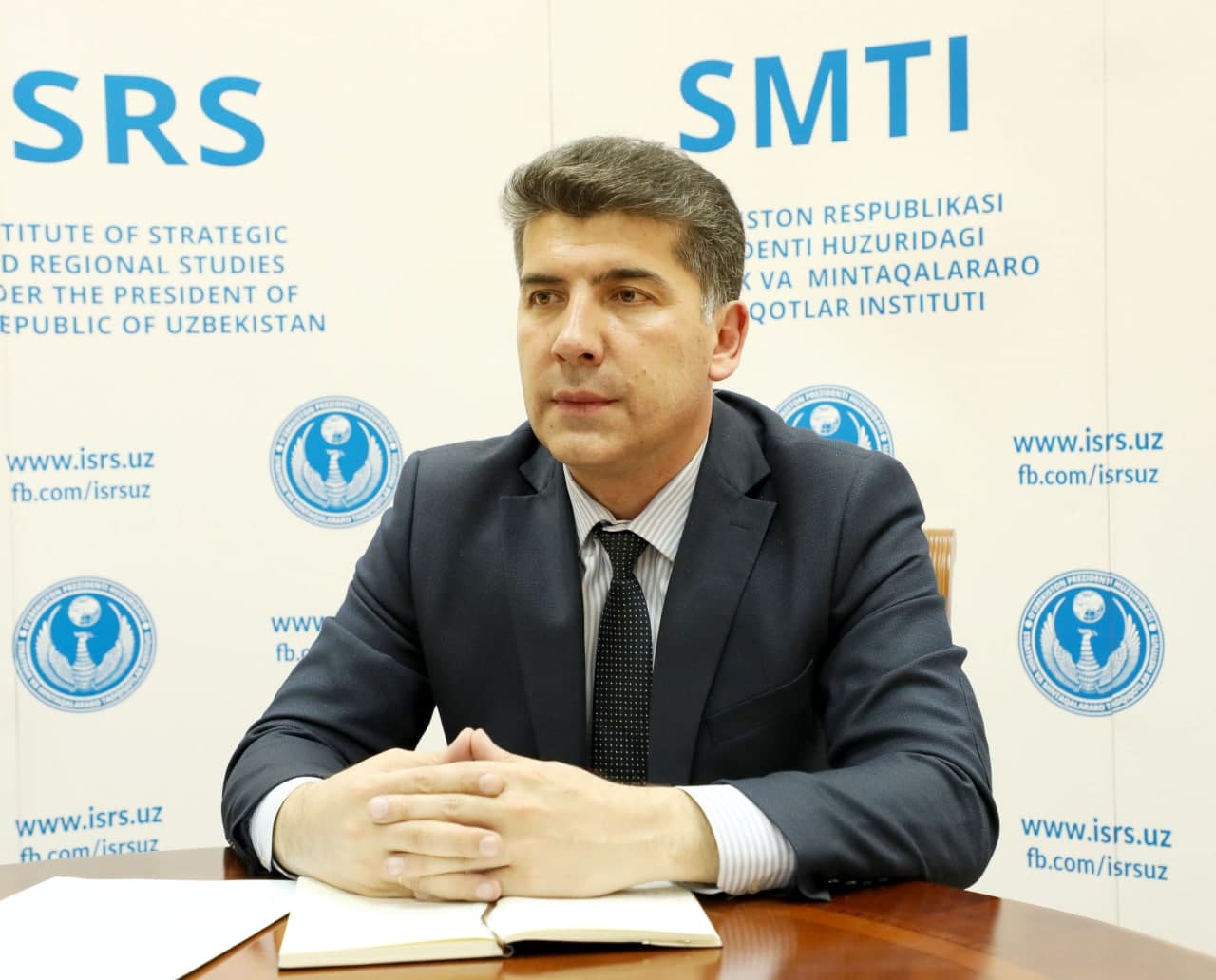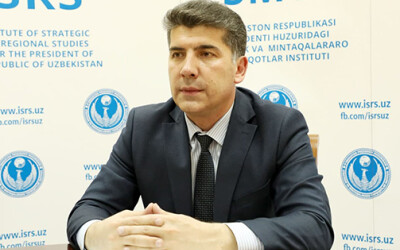ISMI: the implementation of the "Southern Route" to contribute to the development of EU connectivity with another region of Asia - with South Asia

First Deputy Director of the Institute for Strategic and Interregional Studies (ISMI) under the President of the Republic of Uzbekistan Akromjon Nematov shared this assessment during an international video conference on the topic "New EU strategy for connecting Europe with Asia - prospects for Central Asia."
Akramjon Nematov especially emphasized the importance for Uzbekistan and the Central Asian region of the implementation of the "Southern Route", which would pass through Central and Eastern Europe, Turkey, Iran, Turkmenistan, Uzbekistan and Kyrgyzstan and would link the EU with China. The prospect of the project, he noted, lies in the fact that the implementation of this route will also contribute to the development of connectivity with another region of Asia - with South Asia, in which the European partners are undoubtedly interested, given the potential of economic and human resources here. It is a huge market of about 2 billion people and economists estimate that it will account for 30% of global GDP by 2030.
At the same time, the expert added, the overall success of the European strategy will largely depend on the individual successes of connectivity between individual countries and sub-regions located on the Europe-Asia axis. In this context, the initiative of the President of the Republic of Uzbekistan Shavkat Mirziyoyev, put forward at the 75th session of the UN General Assembly to strengthen interregional ties between Central and South Asia, is of particular importance.
As part of the practical implementation of this idea, a high-level international conference “Central and South Asia: Regional Relations. Challenges and Opportunities”. The expert is convinced that this event will become a platform for multilateral discussion of the mutually beneficial strategic model "Central Asia - South Asia" in the transport and logistics, energy, trade, industrial, investment, technological, cultural and humanitarian fields.
The event, organized on 27 April by the Institute for Strategic and Interregional Studies under the President of the Republic of Uzbekistan, together with the representative office of the Konrad Adenauer Foundation in Central Asia, was attended by prominent scientists and experts from leading research institutes and analytical centers of Uzbekistan, Kyrgyzstan, Tajikistan, as well as Belgium, Germany, Italy , Spain, Hungary, France and other EU countries, as well as representatives of ministries and departments.
Previous

First Deputy Director of the Institute for Strategic and Interregional Studies (ISMI) under the President of the Republic of Uzbekistan Akromjon Nematov shared this assessment during an international video conference on the topic "New EU strategy for connecting Europe with Asia - prospects for Central Asia."
27.04.2021





